The Peloponnesian War between Sparta and Athens began in 431 BC and would last for almost 28 years. In the end, Sparta prevailed, but its hegemony would not last long, since first Thebes and then Macedonia, would end up imposing themselves on the Greek world.
At the end of the first year of the war, the Athenians, as was their custom, gathered for a ceremony to honor and remember the fallen. As Thucydides recounts, it consisted of a procession that accompanied the ten coffins (cypress coffers, one for each Athenian tribe, plus one always empty in memory of the disappeared) to their burial place in the Ceramic, the most important cemetery in Athens, which can still be visited today. There, a speaker chosen from among the leading men of the polis, gave a complimentary speech.
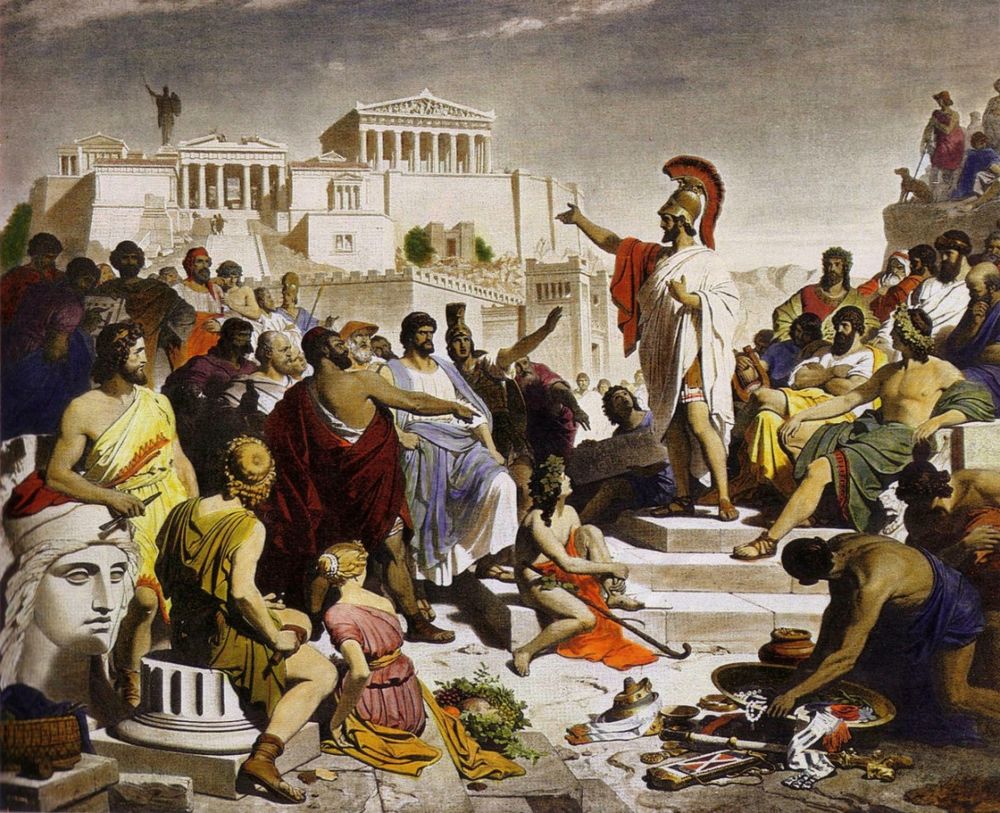
Pericles' Funeral Oration by Philipp Foltz (1852)
When the bodies had been buried, it was customary for some wise and prudent notable and chief person of the city, preeminent in honor and dignity, before all the people to make a prayer in praise of the dead, and after doing this, each one returned to his House. That time to report the praises of the first who were killed in the war, Pericles, son of Xanthippus, was chosen; who, having finished the solemnities made in the tomb, climbed on a chair, from where all the people could see and hear him, and gave this discourse.
Thucydides, History of the Peloponnesian War II.34
On that occasion, the person in charge of the prayer was Pericles, ruler and first citizen of Athens, who begins with modesty and praises not only the fallen, but also Athens itself, at a key moment in its history.
That speech by Pericles is, in the opinion of Thomas Cahill and many other scholars, the most famous speech in history. The reader who does not know the speech may think that he has never heard it. But you are wrong, for many parts will be familiar to you if you have followed the Western politics of the last two or three centuries, at least.
And it is that many later speeches of politicians of the culture that emanates from Ancient Greece, were inspired or directly copied parts of the funeral oration of Pericles.
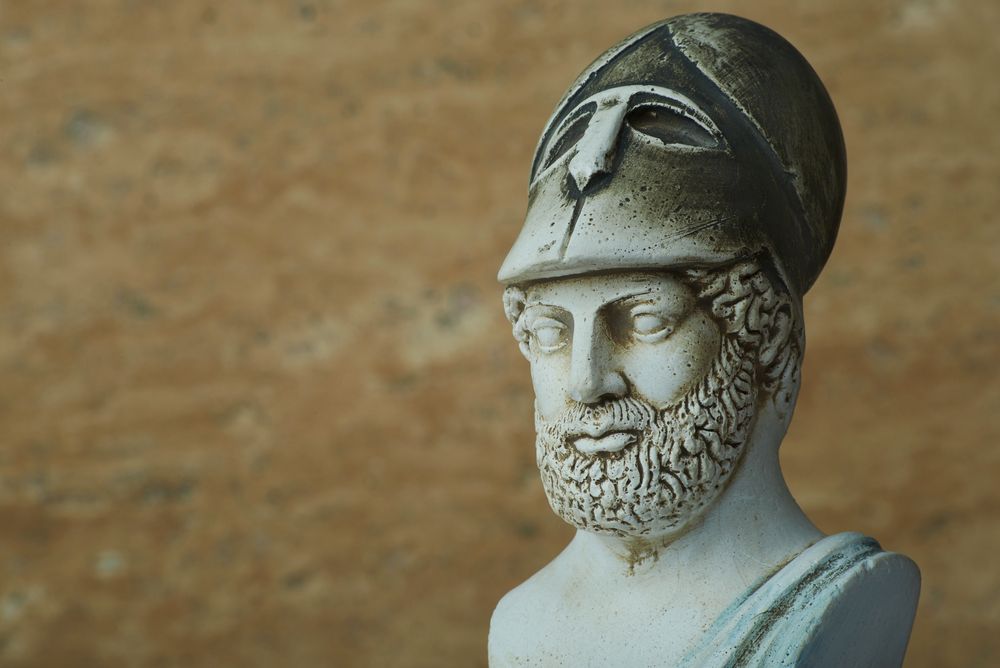
Statue of ancient Athens statesman Pericles. Photo: markara/Shutterstock.com
The speech begins with a praise of the tradition of the public burial of the fallen, and with a warning that the words of the orator will not satisfy everyone.
Many of those who before now have made prayers in this very place and seat, praised in great measure this ancient custom of praising before the people those who died in the war, but it seems to me that the solemn funeral rites which we publicly make today are the best praise of those who by their deeds have deserved it. And also I feel that one should not leave to the will of one man alone to ponder virtues and praises of so many good warriors, and even less to give credit to what he says, whether he is a good orator or not, because it is very difficult to be moderate in praises, talking about things of which one can hardly have a firm and entire opinion about the truth. Because if a person that hears has good knowledge of the fact and loves well the person about whom it is spoken, he always believes that less is said in his praise than should be said and he would want to be said; and on the contrary, a person that has no knowledge of it feels, out of envy, that everything that is said about other person is higher than what his forces and power achieve.
Thucydides, History of the Peloponnesian War II.34
According to Thomas Cahill and other experts, this modest beginning inevitably reminds us of Lincoln's words at Gettysburg:
We have come to dedicate a portion of that field, as a final resting place for those who here gave their lives that that nation might live. It is altogether fitting and proper that we should do this.
But, in a larger sense, we can not dedicate -- we can not consecrate -- we can not hallow -- this ground. The brave men, living and dead, who struggled here, have consecrated it, far above our poor power to add or detract. The world will little note, nor long remember what we say here, but it can never forget what they did here.
Abraham Lincoln, Gettysburg November 19, 1863
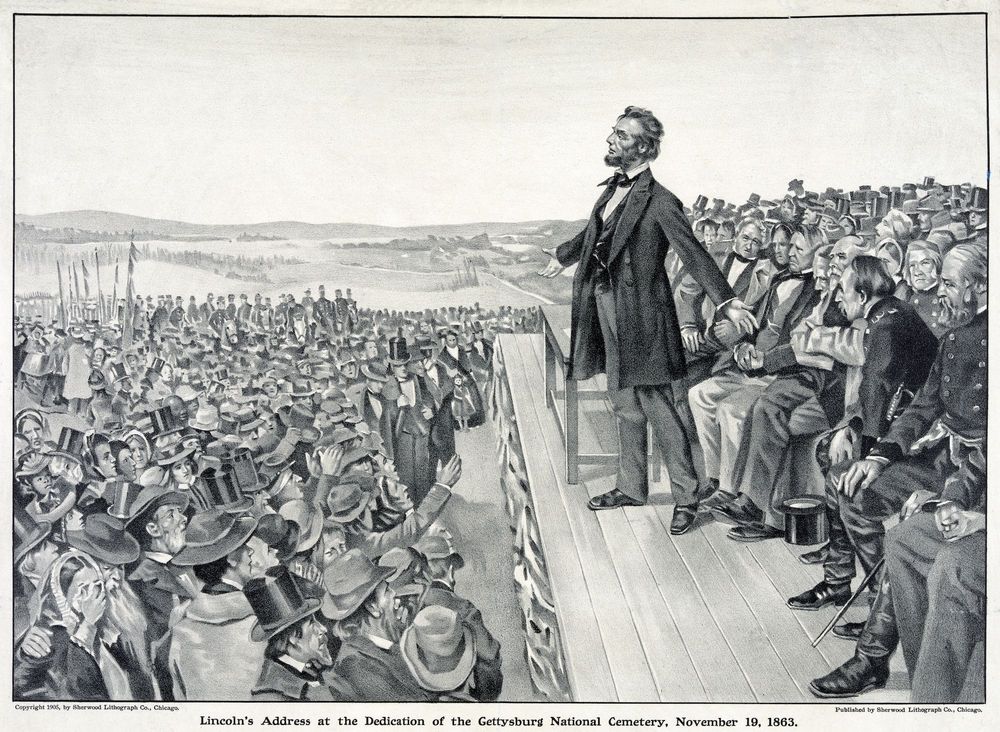
In that same ceremony, the longest prayer was given by Edward Everett, who began by describing the Athenian example .
Pericles praises the achievements of the fallen, but ignores the military victories of the past and focuses on highlighting how Athens got to the present moment, and the form of government they were so proud of, democracy.
For it seems to me that it is not out of purpose at present to bring these things to mind, and that it will be profitable to hear them from all those who are here, whether they be natural or strangers; for we have a republic that does not follow the laws of other neighboring cities and regions, but gives laws and example to others, and our government is called a democracy, because the administration of the republic does not belong to a few but to many.
Thucydides, History of the Peloponnesian War II.34
Pericles continues to highlight the equality of all citizens before justice (free citizens, it is understood) and the extension of these principles to foreign policy as well as the opening of the city to foreigners.
Everyone, according to our laws, has equal rights in particular disputes, while according to the reputation each one has in something, he is not esteemed for things in common more by turn than by his worth, nor in turn by his poverty, at least if he has something good to do for the benefit of the city, he is impeded by the darkness of his reputation.
Thucydides, History of the Peloponnesian War II.34
He then goes on to highlight how Athenians are magnanimous towards others, generous in their help and confident in the validity of their institutions.
And as far as virtue is concerned, we differ from the majority; for we procure friends, not by receiving favors but by doing them. For he who grants a favor is a friend who is more secure in maintaining the friendship owed by the one to whom the favor was granted, for he who owes it is instead weaker, for he knows that he will return the favor not freely but as if it were a debt. And we are the only ones who, without anguish, seek to benefit someone not so much by calculating the right moment as by trusting our freedom
Thucydides, History of the Peloponnesian War II.34
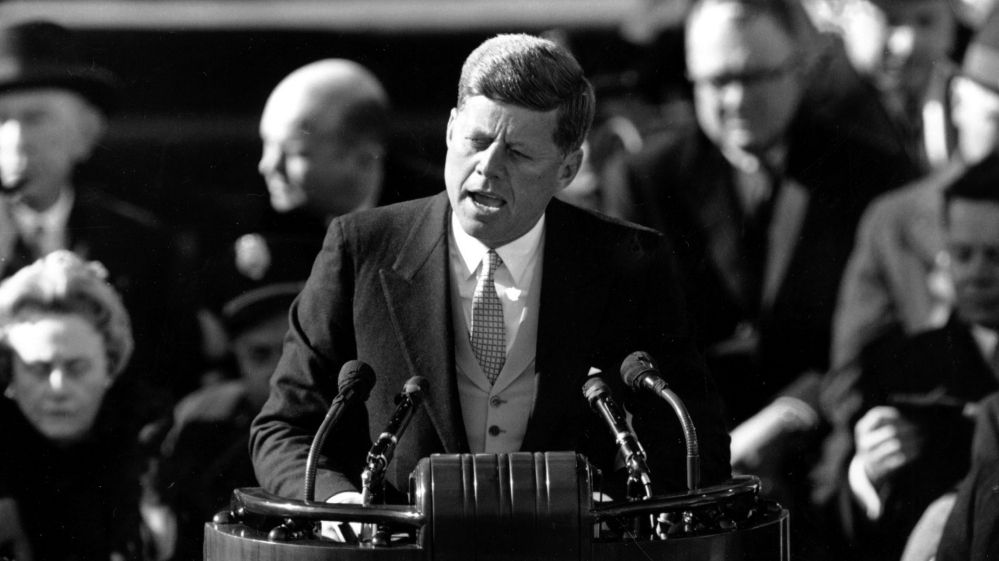
In these words we can trace Kennedy's inauguration speech:
Let every nation know, whether it wishes us well or ill, that we shall pay any price, bear any burden, meet any hardship, support any friend, oppose any foe to assure the survival and the success of liberty.
John F. Kennedy, Inaugural Address January 20, 1961
And in the climax of the speech Pericles links the greatness of the city with the deceased heroes, and expresses the inevitable conclusion that happiness is based on freedom, and freedom on courage.
These men we put before your eyes, certainly worthy of being imitated by you, so that knowing that freedom is happiness and happiness freedom, you do not shy away from the work and dangers of war
Thucydides, History of the Peloponnesian War II.34
Pericles' emphasis on sacrifice for freedom is echoed in the famous words, blood, toil, tears and sweat, from Winston Churchill to the British during World War II in his first speech as Prime Minister. It is not by chance that Churchill knew very well the work of Thucydides and Athenian prayer.
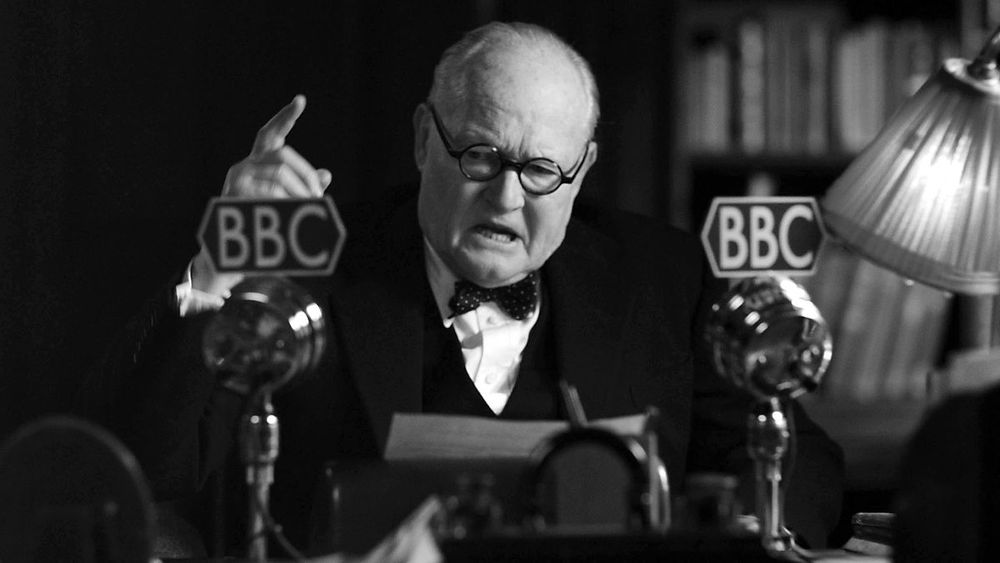
Photo: Winstonchurchill.org
Finally Pericles ends with a short epilogue, reminding the audience of the difficulty of talking about the dead.
I have related in this prayer, which was commanded me to say, according to law and custom, all that seemed to me to be useful and profitable; and what pertains to these who lie here, more honored by their works than by my words, whose children, if they are minors, will raise the city until they reach youth. The fatherland grants crowns for the dead, and for all those who serve well the republic as a reward for their works, because wherever there are great prizes for virtue and effort, there are good and strenuous men. Now, therefore, that you have all wept as it becometh your kinsmen, sons, and mourners, return to your homes
Thucydides, History of the Peloponnesian War II.34
Thucydides warns at the beginning of his work that the speeches he transcribes are not textual records, but rather represent the ideas of what was said. It is certain that Pericles gave that speech and that, in essence, he said what Thucydides wrote, but it is reasonable to think that the historian expressed it in his own words.
On the other hand, the authorship of the funeral oration is not clear. Plato, for example, in his Menexenus , attributes it to Aspasia, the companion of Pericles. But we must not forget that Plato did not like democracy at all, much less Pericles.
Some thinkers, such as Umberto Eco, expressed their rejection of what they consider a political use by Pericles of the fallen, as propaganda not for democracy, but for populism.
In any case, the funeral oration of Pericles perfectly characterizes the moment and the spirit of that Athens, which he identifies as the land of the free and the home of the brave (like the American home of the brave ) that, after his death at the the following year, it would never regain its splendor.
This article was originally published in La Brújula Verde. It has been translated from Spanish and republished with permission.



Comments
Post a Comment